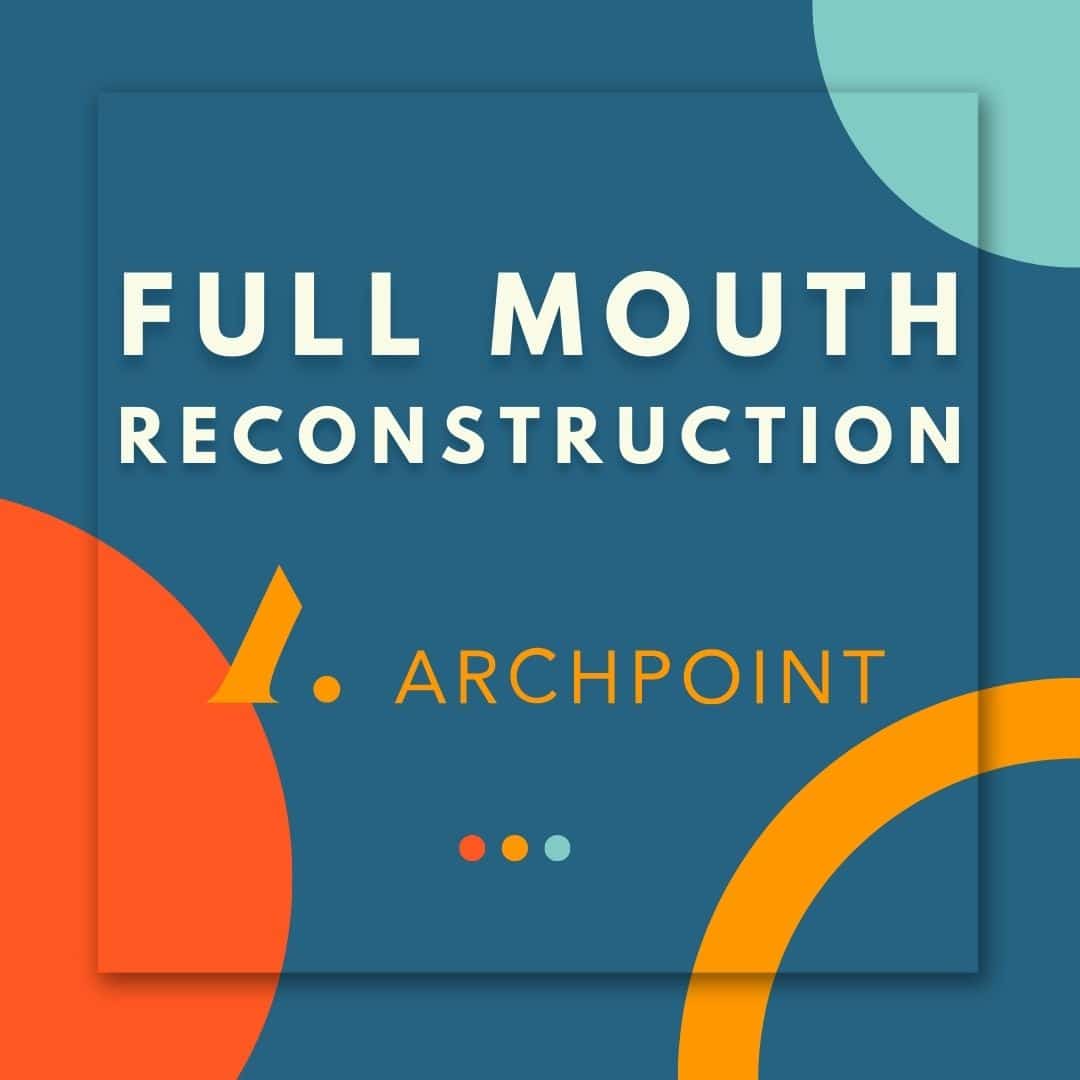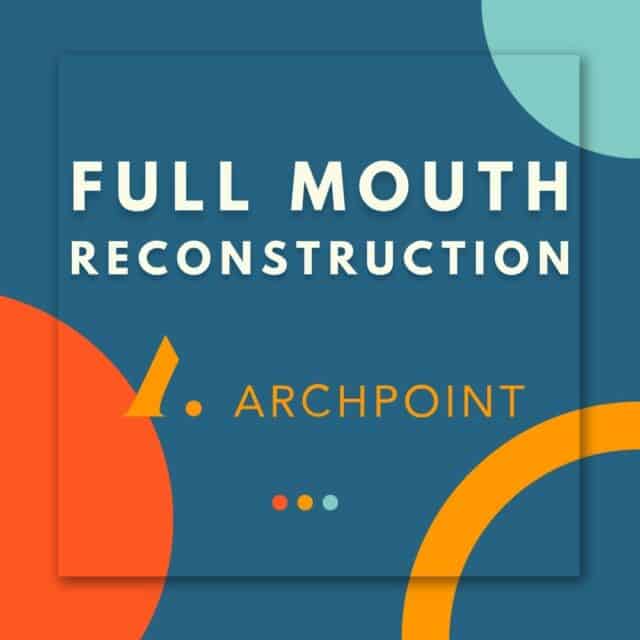
Full arch reconstruction (sometimes called full mouth restoration) is a process where your entire smile is repaired back to normal or even better than before. In many scenarios, it involves replacing all of the teeth at one time. Especially for people with extensive tooth damage, missing teeth, non-restorable teeth, or a history of advanced periodontal disease. The most efficient way to replace all of your teeth at once is with an “All-on” implant system.
Depending on your oral anatomy, a set of four or six implants is used to support the full-arch restoration. Because implants are extremely strong, there’s no need to install an implant for each tooth that’s missing.
What Do “All-on” Implants Look Like?
An all-on implant system is a full-arch prosthesis that covers the curve of your smile, replacing all of the teeth in your upper or lower arch (jaw.) But unlike dentures, all-on implants are more like an extended dental bridge. The fixed prosthesis follows the natural curve of your jaws, freeing up the roof of your mouth. Similarly, there’s no bulky plate or base covering the majority of your jaw. This streamlined design makes all-on implants more comfortable to wear and talk with.
Underneath the full arch restoration are strategically placed implants. The all-on prosthesis permanently locks onto each one of those implants, preventing the restoration from shifting out of place. From the outside, no one can see your dental implants and only an implant provider can remove your prosthesis. There are no plates or partials to take out at night while you’re sleeping. It’s almost like a hybrid between a denture and a bridge.
What Does The All-on Restoration Process Entail?
Full arch reconstruction is a dental procedure that involves replacing all of the teeth in an arch (either the top or bottom) with dental implants. The number of implants used in this procedure can vary, with some patients requiring four implants and others needing six implants per arch. But what’s the difference between using four or six implants for full arch reconstruction? Here are a few key points to consider:
Stability:
One of the main differences between using four or six implants for full arch reconstruction is stability of the overall prosthesis. In general, using six implants provides greater stability compared to using four implants. This is because the additional two implants help to distribute the load more evenly across the arch or jaw, which can help to reduce the risk of implant failure or other complications. However, it’s important to note that the stability of the implants also depends on the quality of the bone in the jaw and the overall health of the patient.
Cost:
Another factor to consider is cost of the implants. Using six implants for full arch reconstruction tends to be more expensive than using four implants, as it requires slightly more materials. However, the cost of the procedure can vary based on various factors, including the location of the practice you choose, the experience and qualifications of your dental team, and the type of implants and restorations selected. Not to mention pre-surgical steps like bone grafting, sinus lifts, or if you need sedation during your dental implant procedure.
Recovery Time:
The recovery time for full arch reconstruction can vary depending on the number of implants used and other factors, such as the patient’s age, overall health, and the condition of the jawbone. In general, using four implants may result in a slightly shorter recovery time compared to using six implants, as the procedure involves less surgery and fewer incisions. But in the big picture, the difference isn’t usually all that much between one and the other. However, the recovery time will also depend on how well the patient follows the post-surgical instructions provided by our dental implant team.
Longevity:
As with any dental implant treatment, the longevity of full arch reconstruction using four or six implants can vary, as it depends on the patient’s oral hygiene habits and other factors, such as their medical history and overall health. However, using six implants may provide greater longevity compared to using four implants, as the additional implants help to distribute the load more evenly and reduce the risk of implant failure.
How Many Dental Implants Do I Need?
The minimum number of dental implants needed for full mouth reconstruction is four implants per arch. When placed at strategic points, four implants can support the biting pressure of all of those teeth. But sometimes, additional support or reinforcement is needed, particularly if there are areas of weak bone anatomy or the implants are placed in a less-traditional position.
Ultimately, the decision to use four or six implants for full arch reconstruction will depend on the specific needs and preferences of the patient, as well as the recommendations of our DFW dental implant specialists. It’s important to discuss all of the options with a qualified dental expert to determine the best course of treatment, as it’s unwise to provide the very same type of implant service to each unique patient.
How to Choose Between All-on-Four and All-on-Six
The only way to determine whether you need four or six implants is to meet with a specialist who can assess your oral anatomy. Usually, 3D imaging works best. CBCT scans allow our DFW implant specialists to visualize your entire oral makeup, including the bone structure that will support your future dental implants. From there, we can identify the best installation point for a stable and secure full-arch prosthesis. As we digitally map out your treatment plan, we can determine if four or six implants are best.
We also offer alternative implant designs like zygomatic implants, which work well for people with extensive bone loss.
Full Arch Reconstruction in Dallas, Ft. Worth
Don’t trust your smile to just anyone. ARCHPOINT implant specialists offer advanced, one-of-a-kind full mouth restoration in DFW. Meet with our experts to feel confident about your smile’s future!








